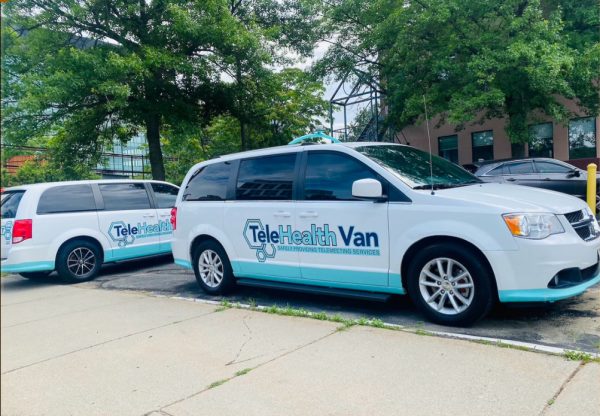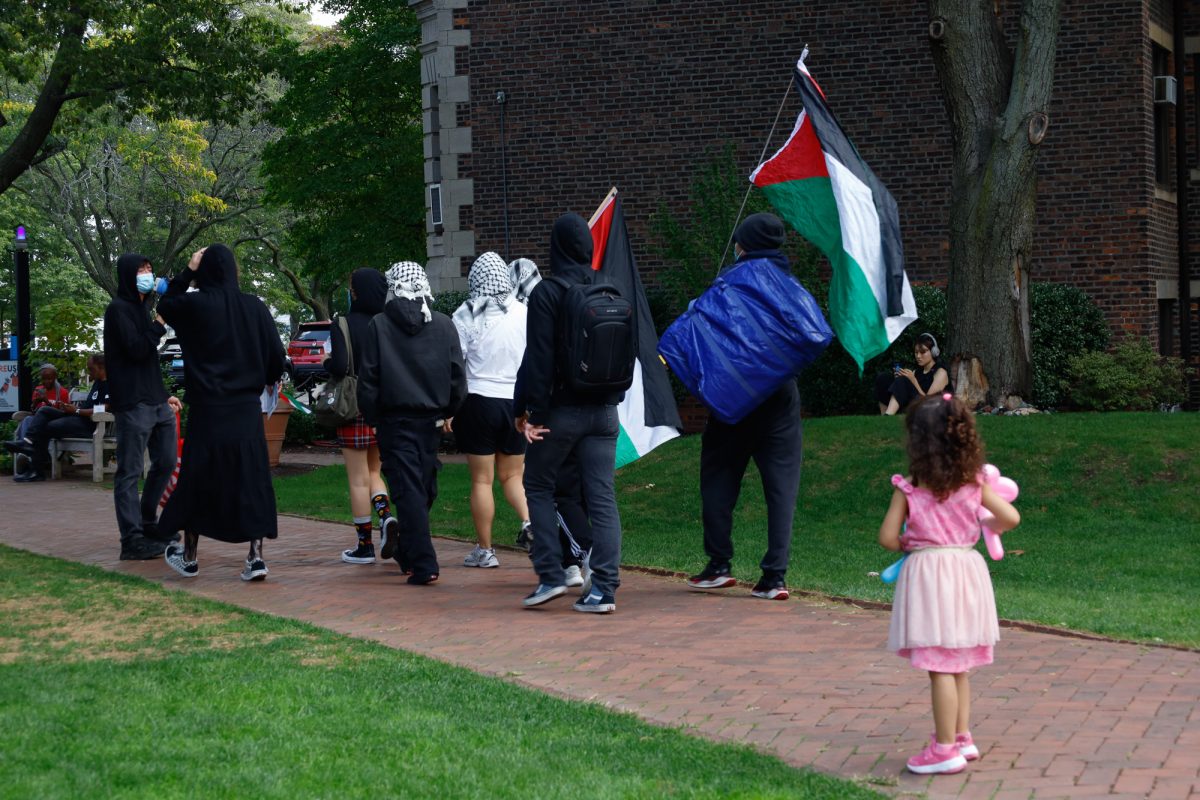The Boston-based Ruderman Family Foundation is working to reduce barriers to mental health resources for students while combating antisemitism.

The foundation has partnered with the nationwide nonprofit TeleHealth Van to provide Boston students with free therapy sessions in vans parked outside Northeastern University Hillel every weekday and Harvard Chabad every Tuesday.
The vans are equipped with monitors through which students can join video calls with licensed therapists, with or without a scheduled appointment.
“We have been really focusing in the last few years on how to bring students to services and how to bring services to students and overcoming these barriers in terms of access [to mental health resources],” said Hanna Shaul Bar Nissim, deputy director of the Ruderman Family Foundation.
The van provides an alternative to traditional office-bound appointments, delivering therapy services directly to students on campus, she said.
Dion Rambo founded TeleHealth Van in 2021 in Los Angeles after witnessing a disconnect between therapists and their clients, especially in underserved communities, during the COVID-19 pandemic.
“I did it as a temporary fix for my clients,” Rambo said. “But once the cities and the states reopened again [after COVID], we noticed that people still tended to not want to travel across the state or across their city or county to a doctor.”
Many of these populations “didn’t even recognize they had mental challenges,” he said.
TeleHealth Van now operates around 25 mobile stations across the country, Rambo said.
“The vans are everywhere, from hotels to unhoused tents, where the homeless may be living, to school campuses,” he said.
When the Ruderman Family Foundation contacted TeleHealth Van in April, Rambo said he jumped at the opportunity to expand the resource to Boston.
“In no time, we came up with something that shipped the vans out to Boston and said, ‘Okay, let’s give this thing a try,’” Rambo said.
The foundation, a Jewish philanthropic organization, hopes the van provides students facing antisemitism therapeutic services in a “private, accessible space,” according to its website.
Other Jewish organizations across Boston echoed the importance of mental health services, especially for students.
“Efforts that bring easily accessible, culturally congruent care to Jewish students are an important step in building resilience on campus and countering impacts of antisemitism,” Melissa Garlick, head of Combined Jewish Philanthropies’ Center for Combating Antisemitism, wrote in a statement to The Daily Free Press.
The Ruderman Family Foundation fully funds the vans to either students or the host colleges, dedicating almost $600,000 a year to the project, Shaul Bar Nissim said.
“We believe that many communities within the campus are affected by antisemitism,” she said. “This applies not only to Jewish students but to all students who are affected by hate discourse, antisemitism and anything that could lead to tension and a non-academic experience on campus.”
Services are not limited to students dealing with antisemitism and are open to students from all Boston- based schools. Students can make Zoom appointments if they are not able to easily access a van.
The foundation aims to expand to other schools in Greater Boston, Shaul Bar Nissim said.
“We are working with multiple universities to try to formalize it, to bring it to their campuses across Massachusetts,” she said. “There’s a need and there’s a response, and people are utilizing this and seeing the benefit of it.”
Rambo said he hopes vans continue to pop up on campuses across the country.
“My personal goal is Boston becomes a template … that others can emulate,” Rambo said. “This is an era in a time where cities, counties and states have to step up to the plate and take care of their own citizens.”














































































































